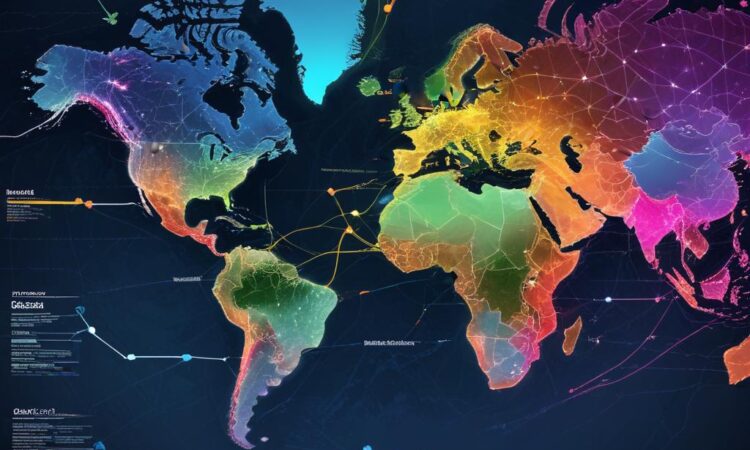Energy Prices and Supply Chain Disruptions
Fluctuations in energy prices continue to affect global economic activity. Supply chain disruptions persist, impacting the availability and cost of various goods and services. Discussions about energy security and diversification are prominent, influencing government policies and corporate strategies. Recent reports from energy agencies highlight concerns about potential energy shortages and their economic consequences.
The interconnectedness of global energy markets means that price shocks in one region can quickly ripple across the world, impacting industries from manufacturing to transportation. The ongoing volatility creates uncertainty for businesses, making it difficult to plan for the future and potentially leading to reduced investment and hiring. This uncertainty is further compounded by the persistent supply chain disruptions which have been exacerbated by geopolitical events, natural disasters, and the lingering effects of the pandemic.
Supply chain bottlenecks are manifesting in several ways. Delays in shipping and transportation are increasing lead times and driving up costs. Shortages of key components and raw materials are hampering production in various sectors. The lack of readily available goods is contributing to inflation and limiting consumer choice. These disruptions are not limited to any single industry; they are affecting everything from electronics and automobiles to food and healthcare.
The current energy crisis has prompted renewed focus on energy security and diversification. Governments are exploring various strategies to reduce their reliance on specific energy sources and suppliers. This includes investing in renewable energy technologies, strengthening relationships with alternative energy partners, and implementing policies to promote energy efficiency. Corporations, too, are adapting their strategies, seeking to diversify their energy sources and improve the resilience of their supply chains.
The implications of energy price volatility and supply chain fragility are far-reaching. Higher energy costs increase the price of goods and services, potentially leading to higher inflation and reduced consumer spending. Supply chain disruptions limit the availability of essential goods, potentially impacting public health and welfare. The economic uncertainty created by these factors can also undermine investor confidence and hinder economic growth.
Recent reports from international energy agencies paint a concerning picture. Predictions of potential energy shortages in the coming years highlight the urgency of addressing these challenges. These reports emphasize the need for coordinated international action to improve energy efficiency, invest in renewable energy sources, and strengthen global cooperation to enhance supply chain resilience.
The challenge of navigating the current energy landscape requires a multifaceted approach. Governments must work together to promote energy security and diversification, while also addressing the underlying issues that contribute to supply chain vulnerabilities. Businesses need to adapt their strategies to mitigate the risks associated with energy price volatility and supply chain disruptions. Consumers will likely face higher prices and potentially limited choices in the near term.
The long-term implications of the current situation remain uncertain. The transition to a more sustainable and resilient energy system is likely to be a gradual process, requiring significant investment and technological innovation. Addressing supply chain challenges will also require collaboration across the public and private sectors. Overcoming these challenges will require a commitment to both short-term solutions and long-term strategies that focus on resilience, sustainability, and global cooperation.
The interconnectedness of the global economy underscores the need for a coordinated international response to the current energy and supply chain challenges. Without a concerted effort to address these issues, the risks of economic instability and social disruption will only increase. The need for international collaboration, technological innovation, and strategic policymaking is more critical than ever before in navigating this period of volatility.
The current situation highlights the vulnerabilities of a globalized economy reliant on complex and often fragile supply chains. Diversification of energy sources and supply routes, coupled with investment in renewable energy and technological advancements, are crucial to building a more resilient and sustainable future. The ongoing challenges require a comprehensive and proactive approach, involving governments, businesses, and individuals working together towards a more secure and stable global economic system.
Further research and analysis are needed to fully understand the long-term consequences of these disruptions and to develop effective strategies for mitigation and adaptation. Ongoing monitoring of energy markets and supply chains is essential to anticipate and respond to future challenges. The current crisis underscores the importance of investing in resilience, diversification, and sustainability to create a more robust and stable global economy.
The complexities of the current situation demand a holistic approach, encompassing various economic, political, and environmental factors. A multi-pronged strategy that combines policy changes, technological innovation, and international cooperation is essential to effectively navigate these challenges and build a more resilient and sustainable future.
The need for proactive planning and preparedness cannot be overstated. By anticipating potential disruptions and implementing appropriate mitigation strategies, governments and businesses can reduce the negative impacts of energy price volatility and supply chain fragility. This requires a commitment to long-term strategic planning, coupled with a willingness to adapt and innovate in response to evolving circumstances.
In conclusion, the fluctuations in energy prices and the ongoing supply chain disruptions represent significant challenges to the global economy. Addressing these challenges requires a comprehensive and collaborative approach involving governments, businesses, and individuals. Investing in renewable energy, strengthening supply chain resilience, and promoting international cooperation are essential steps toward building a more stable and sustainable future.
The ongoing situation underscores the need for a long-term perspective, focusing on building a more resilient and sustainable global economy capable of withstanding future shocks. This requires a commitment to innovation, collaboration, and strategic planning, ensuring a more stable and prosperous future for all.
The interplay between energy prices and supply chain disruptions highlights the interconnectedness of global economic systems. A comprehensive understanding of these dynamics is crucial for policymakers, businesses, and individuals alike in navigating the challenges ahead and building a more secure and sustainable future.

